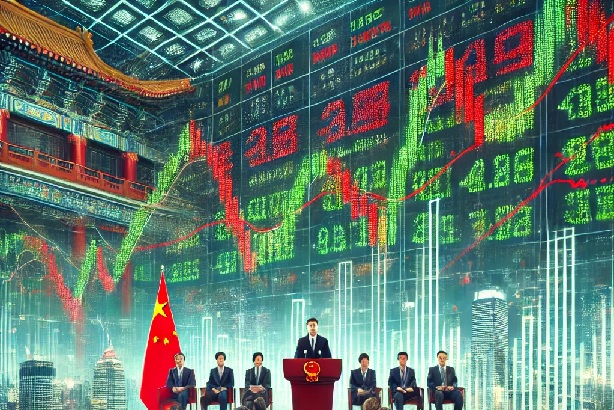
(Photo : China Markets)
China Markets
- Asian stocks are rising, reflecting Wall Street's surge and optimism over Trump's fiscal policies.
- Asia-Pacific stocks are set for a 3.1% rally this week, recovering from a dip due to trade tariff concerns.
- Wall Street indexes hit record peaks on investor expectations of lower corporate taxes and looser regulations under Trump.
- The global stock market shift is due to optimism over Trump's fiscal policies and the Federal Reserve's cautious approach to interest rate cuts.
Asian stocks have seen a broad rise, mirroring Wall Street's overnight surge to record highs. This comes as investors digest the Federal Reserve's message for cautious interest rate cuts, even with expectations for substantial fiscal spending under the incoming President Donald Trump administration.
The U.S. Treasury yields have hit new lows during Asian hours, putting the dollar under pressure after its most significant decline versus major peers in over six weeks.
This development has led to Asia-Pacific stocks being on track for a 3.1% rally this week, a swift recovery from a dip on U.S. election night. The dip was a knee-jerk reaction to concerns about debilitating trade tariffs, particularly in China. However, optimism over stimulus from Beijing has buoyed sentiment as the week-long National People's Congress Standing Committee meeting concludes.
Sources have previously informed Reuters that Chinese fiscal spending could be increased in the event of a second Trump presidency. This optimism is reflected in the performance of mainland Chinese blue chips, which were up 0.5% as of 0155 GMT, following a 3% surge on Thursday. Hong Kong's Hang Seng gained 1%, while Japan's Nikkei added 0.25%, up 3.7% for the week.
Global Stocks and U.S. Election Outcome
Australia's stock benchmark climbed 1%, and Taiwan's benchmark gained 0.7%. Global stocks, led by Wall Street, are headed for a 3.3% weekly advance, standing at a record high. The recent U.S. election saw Trump sweeping back to the White House, with Republicans reclaiming the Senate and potentially increasing their House majority. This outcome defied polls that predicted a neck-and-neck race with Democrat Kamala Harris.
Investor expectations that Trump would lower corporate taxes and loosen regulations sent all three major Wall Street indexes to record peaks on Wednesday. The S&P 500 and Nasdaq extended those highs on Thursday, with Fed Chair Jerome Powell signaling continued, patient policy easing. The Dow ended flat. Powell, in his post-meeting news conference, stated, We think that the economy, and we think our policies, are both in a very good place.
Market Reactions and Future Expectations
He also mentioned that the timing and substance of any policy changes under the incoming Trump administration are unknown. Analysts and investors expect Trump's tariffs and immigration policies to be inflationary. U.S. two-year Treasury yields, highly sensitive to monetary policy expectations, edged down to 4.2119% on Friday, compared with a more than three-month high of 4.3120% on Wednesday.
The dollar index, which measures the currency against six major peers, ticked up slightly to 104.53, but that followed a 0.7% drop on Thursday, its biggest since Aug. 23. On Wednesday, it soared 1.53%, the most in over two years. Shoki Omori, chief Japan desk strategist at Mizuho Securities, noted that markets have already gone through the 'honeymoon period' for the president-elect, and USD and U.S. rates now are in the 'window period', when they consider the policy outlook.









